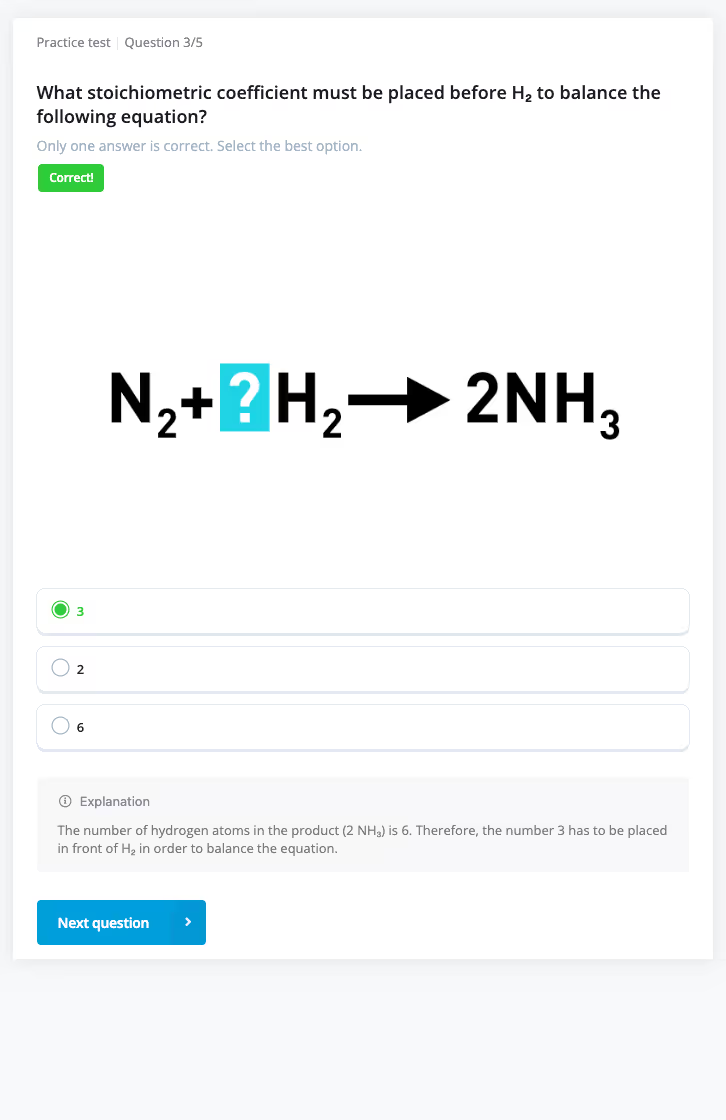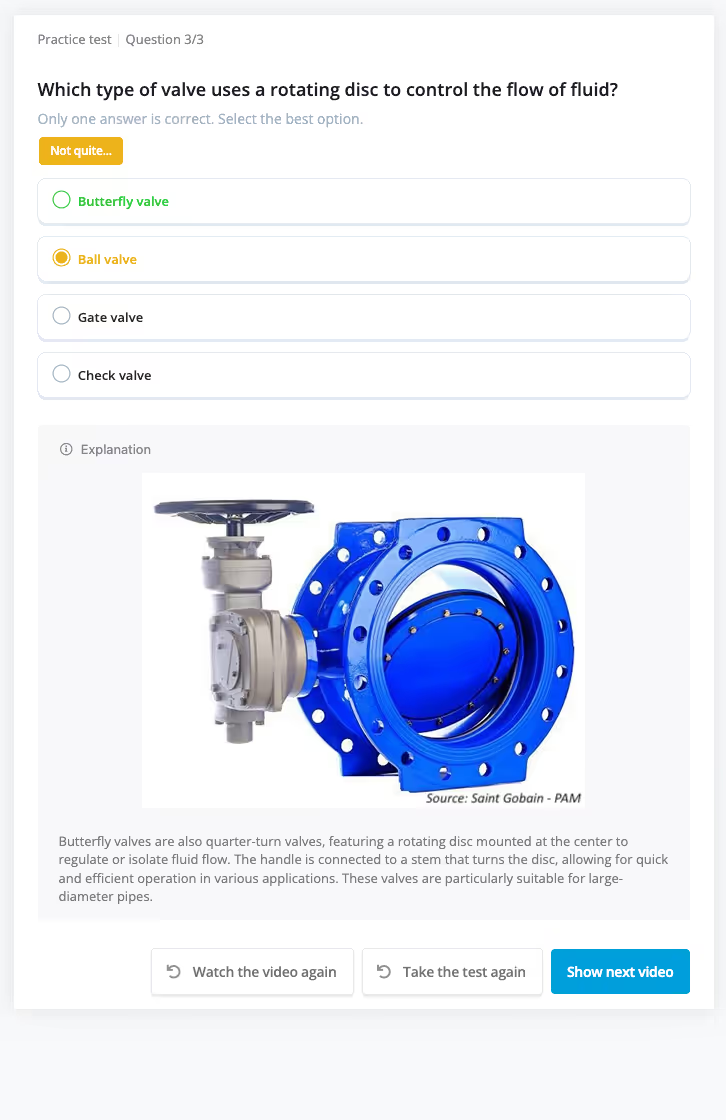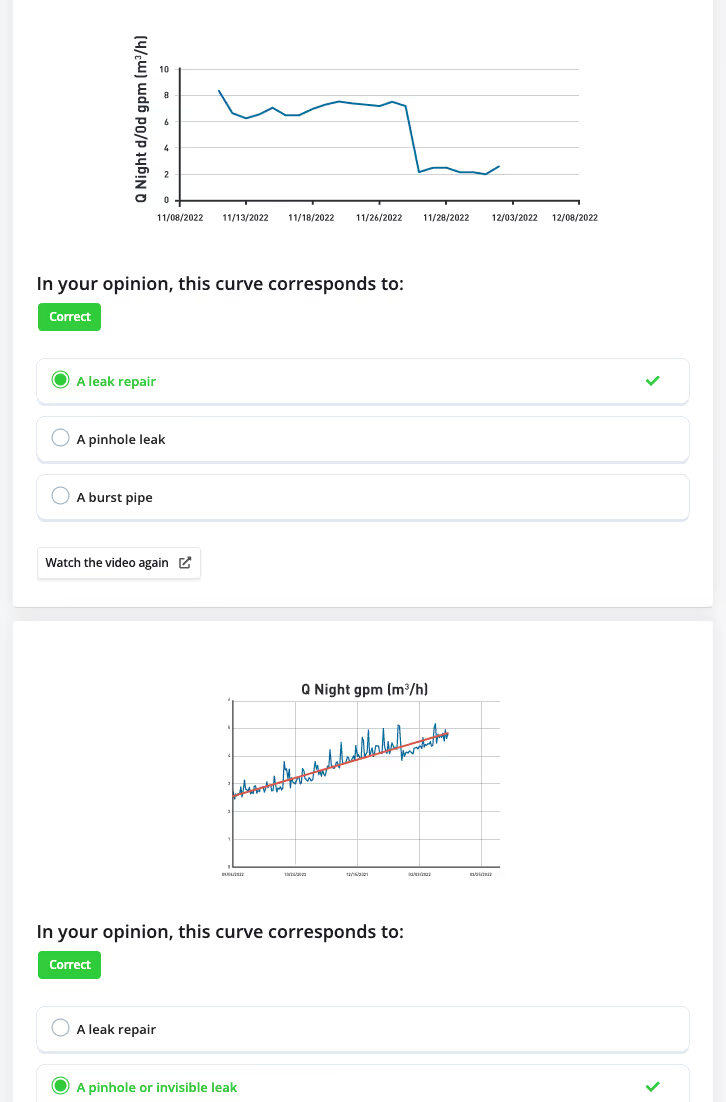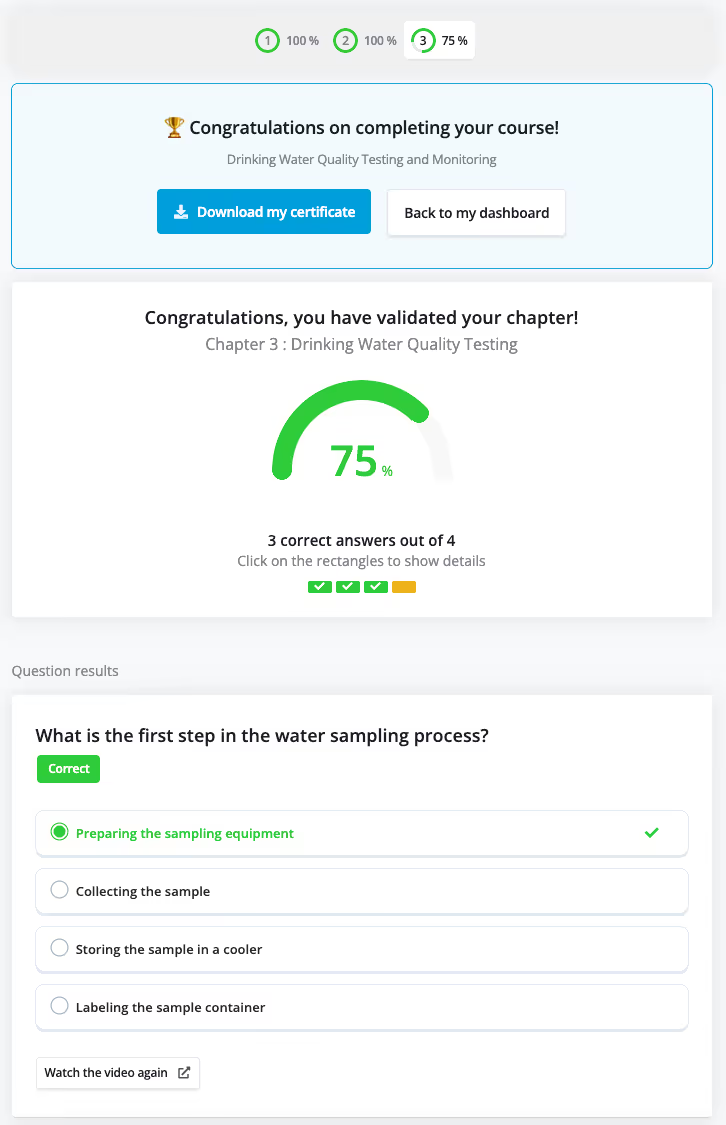Disinfection in Drinking Water Treatment
Training Outline
Disinfection plays a critical role in protecting public health by eliminating microbiological risks in drinking water. In this training, water operators will learn how different disinfection methods work — including chlorination, UV, ozone, and chlorine dioxide — and how to apply them safely and effectively. The course also covers monitoring techniques, operating parameters, and the impact of pH on treatment outcomes.
- Placement test1
Challenges and Regulations
- Introduction
- Purpose of Disinfection in Water Treatment
- Pathogenic Microorganisms
- Other Microbiological Risks
- Assessing the Microbiological Quality of Water
Chapter test - 2
Disinfection By Chlorination
- Forms of Chlorine and the Influence of pH
- Chlorination Using Chlorine Gas or Sodium Hypochlorite
- Advantages and Disadvantages of Chlorination
- Chlorine Measurement Methods
- Chlorine Disinfection Operating Parameters
- Chlorine Gas Safety Recommendations
- Hypochlorination Safety Recommendations
Chapter test - 3
Other Types of Treatment
- Chlorine Dioxide Disinfection
- Ozone Disinfection
- Ultraviolet (UV) Disinfection
Chapter test - 4Chapter test
- 5Chapter test
- 6Chapter test
- 7Chapter test
- 8Chapter test
Learning outcomes
- Describe the purpose of disinfection and key microbiological risks
- Explain how chlorination is used to disinfect drinking water
- Compare the main disinfection methods and their respective advantages and disadvantages
Level
Intermediate
Prerequisites
None
Target audience
This course is designed for professional certified water distribution and water treatment operators class I to IV, maintenance technicians
Learning material and method
Video clips with a placement test, practice exercises and a handout
Learning assessment method
Chapter tests (MCQs) with a minimum score of 70%
Test your knowledge, validate your skills
Engage with interactive quizzes designed to boost retention and track your learning along the way. Once you've completed the training, a final validation step confirms your progress and helps demonstrate your skills with confidence—making it easy to showcase what you’ve learned.
Frequently Asked Questions
Get clear answers to questions about our online training solutions for water and wastewater operators. Learn about course approvals, CEU requirements, platform access, and more, all in one place.
Taking a course with Watura is simple and flexible.
Just subscribe to our online training platform, create your account, and choose any course that fits your needs. You can start learning immediately.
Subscribing to Watura gives you unlimited access to all our courses and exam prep modules.
We provide custom support if you need help on the platform.
With our credit meter you can follow the advancement of your training renewal requirements.
You can earn CEUs/contact hours easily by taking any courses approved by your State's department.
Check the list of pre-approved courses for your State on our catalog.
YES! Before adopting Watura as your training solution, you can create a FREE account.
With this free access you can explore the platform, the course catalog, take placement tests, and watch the first video of each course.




